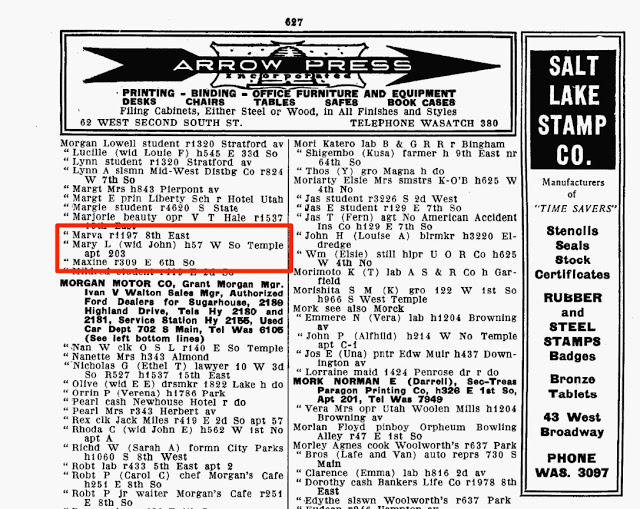How many times this week did you give someone your address or directions to your home? I know I did once at least, in conjunction with checking out books at the library. One interesting phenomena is that we all have a tendency to think that the past was somehow less complicated than the present. This seems to extend to our views about our ancestors. Apparently, many of us believe that no one ever sent mail to or visited our ancestors because we cannot seem to find exactly where they lived. If you think about it for even a few minutes, what about tax assessments, military recruitment, insurance information, doctor visits and hundreds of other contacts our ancestors had with the world in general? Did all these entities and agencies just automatically know where your ancestors lived?
In reality there are layers of historical documents that might provide the exact address or the location of the ancestor's farm. Sometimes finding the specific location where an ancestor lived can make the difference between identifying the right family and going off on a wild goose chase down an unconnected family line following someone with the same or similar name.
One time at the Mesa FamilySearch Library a patron came in with a piece of paper and handed it to me, asking what it was. I looked at it and replied that it was a copy of a parish register probably from England. After explaining what a parish register was, I suggested that the document gave the ancestor's address. The patron seemed surprised, not only that the document contained that sort of information but that the ancestor had an address. This short scene is not an anomaly. In my experience, very few researchers take the time to establish the exact address of the location where their ancestors lived. Many are seemingly content to know their country of origin (even when that is wrongly identified). Even more researchers record the district, state or province and leave it at that. Most of the time, the place where a person lived is identified only by the standard, "city, state, country" asked for on the forms.
To some, looking for the exact address of an ancestor may seem excessive and unnecessary. But it many instances the correct identification of an ancestor may only be possible when the addresses or similar location information separates them out as individuals. Granted as we go back in time this task becomes more and more difficult but in many cases fixing the location of more recent ancestors resolves the difficulty as the researcher goes back in time. My daughter recently positively identified the English parish where an ancestor originated. This fact alone opened up the entire line to further research.
For the past 100 years or so if I want to know where an ancestor lived I can simply look up the ancestor in a city directory.
Here is an entry in a city directory for my great-grandmother, Mary L Morgan, living in Salt Lake City, Utah in 1934.

I certainly do not want to give the impression that directories are the only answer to finding the exact address of an ancestor.
There are many different kinds of records that can show land ownership as well as tenants. For example, many of the years of the U.S. census ask specific questions as to whether the home was owned or rented. This applies to people living both within cities and those living in rural areas. If your ancestor shows land ownership in a census, you can look into the land records for the area where your ancestor was found in the census.
I also suggest that the following types of documents can contain exact location information in addition to directories:
Once you get started with this list, remember that in each category of records there are many, many sub-categories.
The point here is that finding the exact location of where an ancestor lived is the key to locating additional documents but rather than search for birth and death dates the real investigation should focus on locating the ancestor first.
Written by James L. Tanner. Used with permission.
Need help finding more records? We have genealogy research services available. You can also try our genealogical records directory which has more than 1.3 million sources to help you more easily locate the available records.